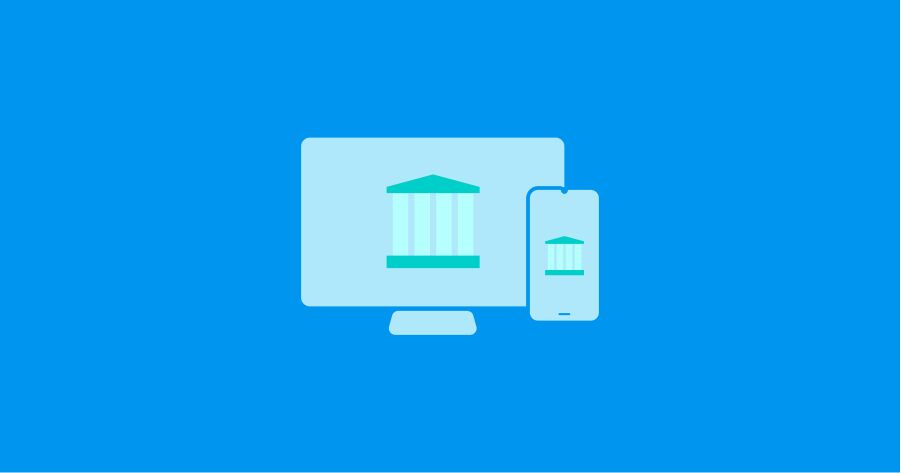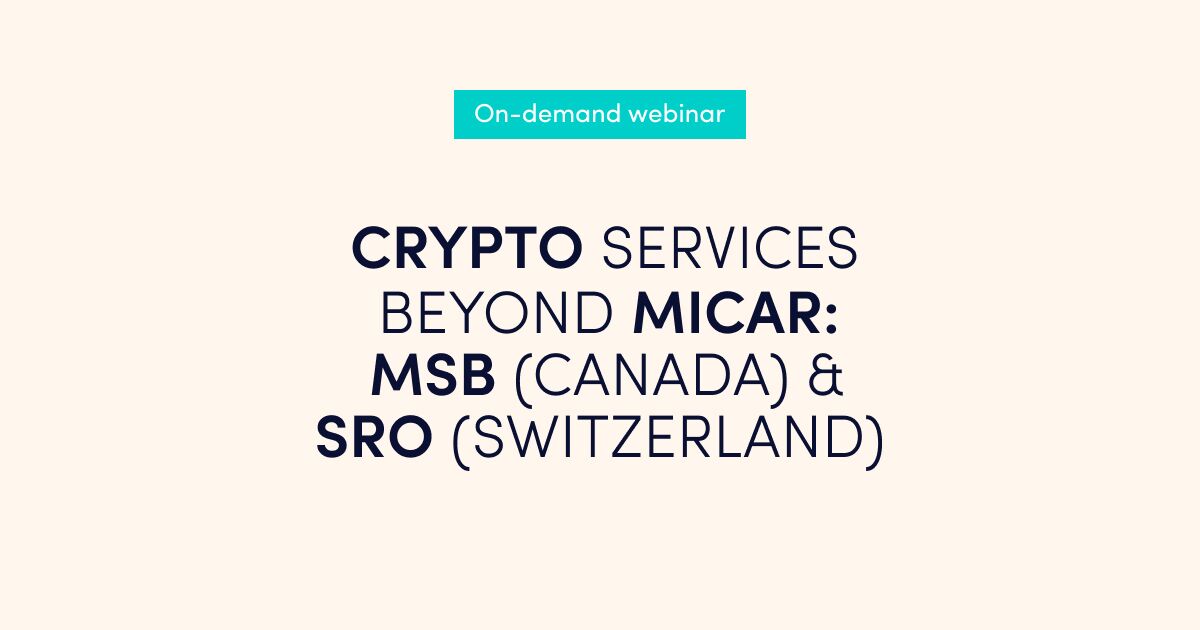What is digital banking?
Essentially, digital banking is banking carried out via digital core banking platforms reducing or even eliminating the dependency on traditional methods of banking. Using the latest technologies and the most advanced digital banking solutions, all banking processes and transactions can be facilitated and optimised.
Digital banking is also a term that refers to the digitization of banking at every level, from the front end to the back, with artificial intelligence (AI) being used to simplify and automate different digital banks’ operations processes.
From the customer’s point of view, digital banking refers to the usage of banking services through laptops, smartphones, tablets and other internet-connected hardware.
- What is digital banking?
- Two terms of Digital Banking
- Digital Transformation in Banking
- Key statistics of digital banking
- Digital banking services
- Digital Banking Industry Trends
- The Consumer Benefits of Digital Banking Platforms
- Digital Banking Solutions
- Key Digital Banking Solution Features
- The Benefits of Ready Digital Banking Solutions
- The Top 9 Digital Core Banking Solutions Providers
- How to Choose the Best Digital Banking Software
- The biggest digital banks
- FAQ
Two terms of Digital Banking
Typically speaking, digital banking can be broken down into a couple of subcategories; mobile banking and online banking.
Online Banking
Allows customers to access a bank’s services via the internet. This secure online area often means that customers no longer have a need to visit a bank branch, as everything can be managed remotely.
Mobile Banking
Able to be accessed through a smartphone or tablet app, mobile banking has fundamentally changed how people manage their money. With just a tap of a screen, money can be transferred, recent transactions can be checked, and direct debits can be managed.
Digital Transformation in Banking
Key factors that are driving digital transformation include strong customer demand for advanced banking technologies and better experiences, as well as the increasing popularity of the internet. All of these factors influenced the emergence of new digital banking technologies, bringing significant changes to the financial services industry.
New systems are now able to deliver a fully digital customer experience and allow banks to connect with customers from multiple locations. Also, Modern digital banking systems deliver a variety of benefits for banks/digital banks, such as reduced operational costs and manual labour, fewer errors and improved transaction accuracy.
Key statistics of digital banking
The total number of digital banking users is expected to hit 3.6 billion people around the world by 2024. So, in just a couple of years’ time, over half of the planet’s population will be engaging with this enhanced method of digital banking.
Here are some other key statistics on the subject:
- The first fully digital bank – Security First Network Bank – first operated online in 1995;
- More than 94% of mobile banking customers use digital services once per month;
- Banking apps represent the primary banking method for 4 out of 10 customers;
- Digital banking is preferred by 25% of customers compared to in-branch banking;
- Almost 83% of customers won’t switch banks due to digital banking.
Digital banking services
Digital banking services include all the most popular banking services.
- Opening & management of multi-currency accounts
- Requesting & replacement of payment cards
- Payments, bill payments & transfers
- Viewing of bank statements & reports
- Opening of deposit accounts
- Cash withdrawals
- Currency exchange
- IBAN generation
Digital Banking Industry Trends
1. Expansion of Banking-as-a-Service offerings
Obtaining a Payment or E-money licence and developing a payment infrastructure both involve very costly and drawn-out processes. Banking-as-a-Service (BaaS) can solve these problems and open the door to the regulated fintech market for companies without a licence and/or a payment infrastructure.
When registering, agents receive the right to conduct payment services and e-money activity under a payment or e-money institution licence and connect to the BaaS provider’s payment/banking infrastructure.
2. Fintechs are merging with technology companies
Some fintech companies are merging with technology companies to create a reliable BaaS proposition for financial institutions that includes both the platform and access to financial services or to enhance their market offering.
For example, Global Payments acquires fellow PayTech solution developer EVO, and Technisys acquires SoFi to expand its banking capabilities.
3. Cooperation between fintech and banks
Banking and fintech cooperation is one of the obvious fintech trends to watch in 2022 and 2023. Some banks share their digital banking infrastructure with both licensed and non-licensed companies using the BaaS model (e.g. Solaris Bank).
Also, banks can offer access to specific account data to authorised fintech companies (AISP) through Open API or access to authorised PIS providers for payment initiation.
4. Hyper-personalisation
Hyper-personalisation has become a dominant trend in Digital banking, representing more of a necessity than simply an option. It requires the provision of custom-made digital banking services for each and every customer. Leveraging behavioural science and Artificial Intelligent (AI), data is collected that relates to a person’s location, transaction history, shopping habits and more.
This data can subsequently be used by digital banks to offer custom-made promotional offers and recommendations, as well as predict their future needs.
The Consumer Benefits of Digital Banking Platforms
As we mentioned a moment ago, digital banking is transforming the customer experience people have with their banks. The benefits are many and various, including:
- Account access – the unrestricted access that customers get to their account, day or night, is a real game-changer.
- Financial inclusion – Also, the playing field is levelled in terms of banking access by upstart online banks, as they’re able to reach the underbanked and unbanked. This community largely relies on mobile phone technology and may not have a physical bank branch they can visit.
- Lower banking fees – consumer choice in terms of fees and rates is greater than ever due to the fact online banking has made the market more competitive. Thanks to digital banking solutions, banks and fintech companies can lower their administrative expenses.
- Enhanced Usability – Digital banking enables consumers to open accounts remotely or perform banking operations from any part of the world from the comfort of their homes.
- Better personalization – using Machine Learning & AI in digital banking platforms enables banks to deliver personalised services, such as custom-made offers, reminders, spending analytics and more.
- Automation – digital banking platforms allow for the automation of many operations. The opening of current accounts and the making of payments can now be fully automatic because of different tools and features, e.g. automatic AML/KYC solutions, AI and built-in setting tools.
- Battling money laundering – digital banking restricts black money circulation and promotes a cashless society.
- Security – mobile and web banking apps are equipped with multi-factor verification, requiring biometric authentication systems to log in. This can include fingerprints, voiceprint and facial recognition software, which work to alleviate consumer concerns. Also, all payments and account information is secured using reliable automatic AML/KYC systems built with AI.
Digital Banking Solutions
A competitive, secure and unique user experience can be delivered using digital banking platforms like Advapay’s Macrobank. Rather than digital banking solutions merely representing online banking platforms, the tools they offer help to differentiate the financial organisation or bank that uses them based on the service level that’s being provided.
Digital banking solutions ensure that modern financial organisations and banks are able to achieve their business goals using functionality that is ready to use. New functions can also be added over time as the organisation grows to provide great business value with no hidden costs.
Key Digital Banking Solution Features
- Ready-to-use and ready-to-customize complete back-office platforms with all important functionalities
- Ready mobile & web banking apps for end-users. Cross-platform support for all browsers and iOS/Android apps
- Out-of-the-box integration with APIs reduces the risks on upgradability & testability
- Cloud-ready microservices architecture ensures scalability, stability & portability
The Benefits of Ready Digital Banking Solutions
- Products & services can be launched to market faster, compared to a bank’s own development process. Traditionally speaking, developing software from scratch in a short period of time is almost impossible, with the process typically taking at least a year.
- External & internal systems can be seamlessly integrated, with ready digital banking solutions often including a range of ready-to-use integrations.
- Customising a ready-made modern system with your branding is far quicker than developing solutions like these from scratch.
- Banks can go live rapidly with minimal risk, compared to developing their own products. When developing their own solutions, the process can be held up at any time. For example, there’s the risk of losing specific skills and competencies when employees leave, as well as going over budget, as total costs are tricky to work out accurately at the outset.
- Products can be created to meet your budget, which is far more efficient than developing digital banking solutions in-house.
The Top 9 Digital Core Banking Solutions Providers
The leading lights in digital core banking feature well-known providers. Here we look at the top 9 digital core banking software providers for fintechs.
#1 Advapay
A tech company that provides the Macrobank platform for fintech companies. Launched in 2015, the Tallinn-based company has offices in Canada, Spain, Poland and Serbia.
#2 Mambu
Mambu started up in 2011 in Berlin and offers leading cloud banking services. Since its launch, the company has since grown significantly, now having 11 more offices in Abu Dhabi, Amsterdam, Bucharest, Dresden, Romania, Lithuania and the United Kingdom.
#3 Backbase
Backbase, a Dutch banking technology & fintech company offers engagement banking for large banks, community banks and credit unions. Founded in 2003 and HQ’d in Amsterdam, it’s a company with offices in 16 countries.
#4 Temenos
Established back in 1993 in Geneva, Temenos offers its eponymous Temenos Transact platform that provides a broad range of services for banks. The company is a large one that has 62 offices across 39 different countries.
#5 Sopra Banking
Another well-established company that’s known for its Sopra Banking Platform and was founded back in 1968 in France and now has countless international offices around the world.
#6 Finacle – from Infosys
A Bengaluru-based company that launched in 1999 – the Finacle core banking platform offers a wealth of banking functions for businesses. The company also has a presence in 50 countries worldwide.
#7 Finastra
Based in London, Finastra offers commercial & consumer lending and was founded in 2017. While having its HQ in England’s Capital city, it also has a presence in Canada, the US, Singapore, and the UAE.
#8 Fis
Offering a range of real-time payment solutions and other financial products, Fis is based in Florida and was founded back in 1968. As such, this well-established company has many offices across Asia, Oceania, the US, South America, Europe and Africa.
#9 Thought Machine
Another London-based digital core banking provider is Thought Machine, which was founded in 2014 and offers a range of products for financial sector. Their Proprietary Vault Core and Vault services feature a Universal Product Engine, Ledger & APIs.
How to Choose the Best Digital Banking Software
When deciding upon the right digital banking software for your business, a number of different variables need to be considered. Let’s take a look at what they are.
1. Choose functionality according to your business plan
Before you talk of functionality, you must have a highly-detailed business plan and services overview. The types of payment, currency pairs and countries you’ll operate in will determine the right option. As such, every core banking system should include the following functionality.
- Multi-currency accounts & IBAN generation
- A range of different payment methods
- KYC/AML & Customer onboarding
- Financial accounting & general ledger
- Workflow manager
- Currency exchange
- Issuing of cards
Also, the vital criterion to consider when choosing your digital banking system is the availability of ready-to-use web banking and mobile applications that can be customized to meet your precise needs.
2. Calculate the total costs
The solution you choose must obviously fall within the scope of your budget. The following include some of the factors you’ll need to consider when calculating your final costs.
- Purchase of software
- Cost of setup
- Monthly & maintenance fees
- Integration costs
- System hosting & software updates
3. Check if the solution meets technical & security requirements
Integrations & APIs
Core banking should enable an “open banking” approach, taking advantage of open application programming interfaces (APIs) to easily integrate solutions from the payment services providers and other third-party providers, e.g. AML/KYC providers for smooth client registration and onboarding.
Architecture & flexibility
Regulatory requirements and customer needs are changing, with new technologies appearing on the market – something that influences companies to redesign their products.
A digital banking back-office application must be flexible to make any change your business may need in the future – changing workflows, adding new products, increasing payment volumes, etc.
Also, end-user apps (mobile & web banking) must be easily customizable not only to meet branding requirements but also business needs. Digital banking staff must be able to easily add & delete fields (e.g. for client registration), change operational workflows (e.g. add-delete additional steps for specific clients) and make other everyday changes digital banks need.
The biggest digital banks
Although legacy banks offer their customers digital banking services, the heralding of a new digital age has brought with it an array of online banks (challengers & neo-banks) and fintech companies who employ a mobile banking approach that’s centred on security, convenience and accessibility. These newcomers to the industry often offer a reliable, modern UX, as well as savings account yields that are above the norm.
Meet the top 10 digital banks by TopMobileBanks that are the biggest in the terms of valuation, total funds raised, and the number of customers these neobanks have.
#1 Ant Group (CHN)
Begun in 2014 and based in Hangzhou and Zhejiang, China, the ANT Group’s CEO is Eric Xiandong JING. The bank has 1.3 billion customers and is valued at between $70-$151 billion. Also known as ANT Financial or Alipay, it’s a Chinese fintech conglomerate and Alibaba Group affiliate that’s raised $22 billion (last round at $14 in June 2018).
#2 Revolut (UK)
Launched in 2015 and based in London, England, Revolut (UK) is a bank that’s spearheaded by CEO Nikolay Storonsky. The bank is valued at $33 billion and boasts 20 million customers. Since its launch, it has expanded across Europe and further to Australia & Singapore (in 2019) and the United States in 2020. $1.7 billion was raised (last round at $800 million in July 2021).
#3 Chime (US)
Founded in 2013 and based in San Francisco, USA, Chime is led by CEO Chris Butt and has a valuation of $25 billion. The bank has 14 million customers and is the most valuable fintech startup in America, offering banking services to retail consumers. $2.3 billion raised (last round at $750 million in August 2021).
#4 Cash App (US)
Started in 2013 and again based in San Francisco, California, USA and led by ex-Twitter CEO Jack Dorsey, Cash App is valued at $22 billion and enjoys more than 70 million customers. Formerly known as Square Cash, Cash App is a digital banking app and a peer-to-peer mobile payments service that is available in the US and the UK.
#5 Nubank (BRA)
Founded in 2013 and headquartered in Sao Paulo, Brazil, Nubank is run by CEO David Velez and has a $21 billion valuation ($41b at IPO). This is the largest neobank in Latin America and one that holds a full Brazilian banking licence by presidential decree. Starting in Argentina and Mexico in 2019, the bank then moved to Velez’s home country of Colombia in 2020. $3.9 billion raised (last round at $650 million in April 2022).
#6 WeBank (CHN)
Launched in 2014 and based in Shenzhen, Guangdong, China, WeBank is led by CEO David Ku, with the company being valued at over $21 billion. With a staggering 340 million customers, it is China’s foremost digital bank and has Tencent as its largest shareholder, with 30% belonging to the Liye Group, Biayeyuan and other institutions. $165 million raised (last round at $165 million in May 2016)
#7 Brex (US)
Founded in 2017 and located in San Francisco in the US, Brex has Henrique Dubugras as its CEO and a valuation of some $12 billion. With 3.8 million customers, the fintech offers FDIC insurance, instant payouts, and a software platform business can use to manage their finances and credit lines. $1.5 billion raised (last round at $300 million in October 2021)
#8 Rakuten (JAP)
Started in 2000 and based in Japan’s capital city Tokyo, Rakuten is headed by its CEO Hiroyuki Nagai and is an electronic ecommerce and online retailing company. With over 12 million customers, its Japan’s largest digital bank by the number of accounts and has a valuation of $11.7 billion. $2.3 billion raised (last round at ¥242B in March 2021).
#9 Wise (UK)
Founded in 2011 and based in London, England, Wise (UK) is overseen by CEOs Kristo Kaarmann and Taavet Hinrikusy and enjoys more than 7 million customers. Valued at $9.6 billion ($11B at IPO), the fintech is a popular one that specialises in international money transfers and banking services. $1.3 billion raised (last round at £160 million in May 2021).
#10 Ally Bank (US)
Launched in 2009 and situated in Detroit, Michigan, USA, Ally Bank is a full-service online bank that offers an array of deposit and personal lending services, as well as mortgage products. Led by CEO Jeffrey J. Brown, the company has 2.5 million customers and a $9 billion valuation ($12B at IPO).
FAQ
Essentially, digital banking is banking carried out via digital core banking platforms reducing or even eliminating the dependency on traditional methods of banking. Using the latest technologies, all banking processes and transactions can be facilitated and optimised.
Digital banking services include all the most popular banking services:
– Opening & management of multi-currency accounts
– Requesting & replacement of payment cards
– Payments, bill payments & transfers
– Viewing of bank statements & reports
– Opening of deposit accounts
– Cash withdrawals
– Currency exchange
– IBAN generation
1. Expansion of Banking-as-a-Service offerings
2. Fintechs are merging with technology companies
3. Cooperation between fintech and banks
4. Hyper-personalisation
1. Advapay
2. Mambu
3. Backbase
4. Temenos
5. Sopra Banking
6. Finacle – from Infosys
7. Finastra
8. Fis
9. Thought Machine
1. Choose functionality according to your business plan
2. Calculate the total costs
3. Check if the solution meets technical & security requirements
1. Ant Group (CHN)
2. Revolut (UK)
3. Chime (US)
4. Cash App (US)
5. Nubank (BRA)
6. WeBank (CHN)
7. Brex (US)
8. Rakuten (JAP)
9. Wise (UK)
10. Ally Bank (US)
A digital banking platform is a software solution equipped with robust management tools tailored for digital banks, fintech companies or e-wallets. It streamlines operations for employees while enabling seamless access to banking services for customers such as fund transfers, currency conversions, and account management. Typically, the platform acts as the engine, incorporating back-office applications for operational management, along with customizable web and mobile banking applications under a white-label framework.
About Advapay:
Advapay is a technology company providing the Digital Core Banking platform to empower fintech clients or digital banks to start their businesses and accelerate digital transformation. The platform delivers all essential functionalities, a front-to-back system and a set of tools to customise and bring new integrations. With Advapay, potential and existing customers can connect either to the cloud-based SaaS or on-premise software. Besides the technical infrastructure, the company provides business advisory and fintech licensing services. Interested to learn more, please drop us a message









